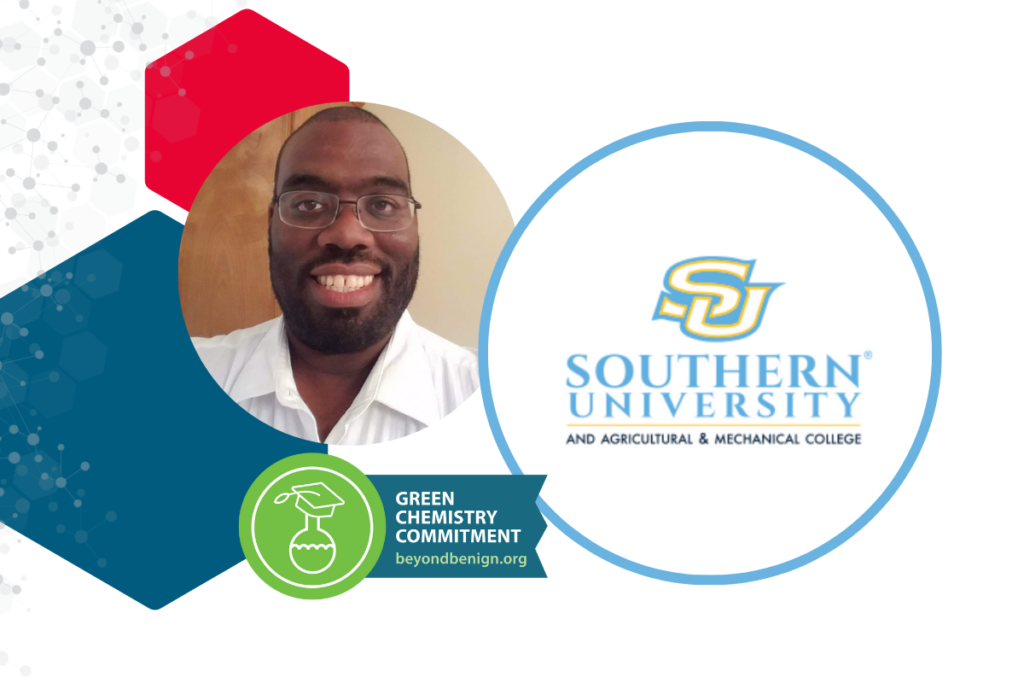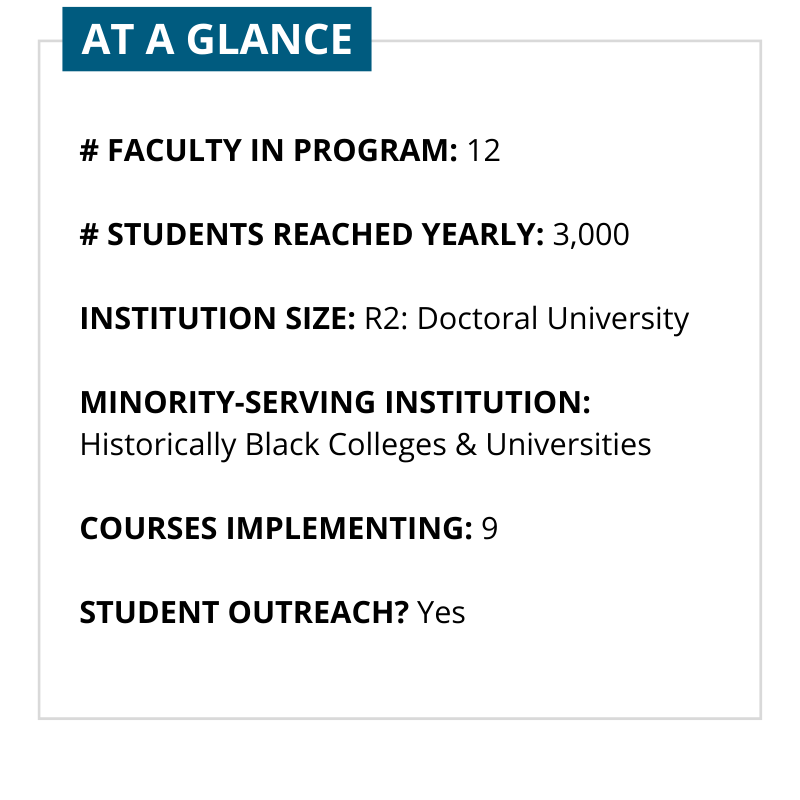An interview with Conrad Jones

In 2013, Beyond Benign created the Green Chemistry Commitment (GCC) program with guidance from higher education institutions as a framework to unite the global green chemistry community. The GCC goal is to infuse green chemistry into Higher Education and give scientists the required skills to design processes and products less hazardous to human health and the environment.
Beyond Benign has partnered with companies including Dow, MilliporeSigma, and Biogen to further its mission to empower educators to transform chemistry education for a sustainable future. Support from these partners has allowed Beyond Benign to create resources, foster relationships, and provide essential funding to educators, all in an effort to grow and strengthen the green chemistry education community.
Southern University is a Dow grant winner and GCC signer. Discover the university’s story in our interview with Assistant Professor of Chemistry Conrad Jones.
How has being part of the GCC impacted your institution and you as a faculty member?
The impact that GCC has on our chemistry department at Southern University has been tremendous. STEM students enrolled in our General Chemistry courses are introduced to green chemistry concepts in both lecture and lab courses. During this 2022-2023 academic year, green chemistry concepts have been incorporated in General Chemistry, Analytical Chemistry, and Organic Chemistry courses.
As a faculty member, I am very thrilled and appreciative of being part of the GCC in helping students and faculty in the chemistry department as well as other departments at Southern University. In addition, it has given me the opportunity to provide students with the knowledge and skills to learn and apply green chemistry concepts to chemistry to prepare them for the workforce in the area of green chemistry.
What student outcomes have you observed since instituting green chemistry practices and principles?
Since the start of implementing green chemistry concepts and practices into the chemistry curriculum at Southern University, we have noticed that many students have developed a strong interest in knowing more about green chemistry and inquire about being involved in green chemistry projects in the chemistry department at Southern University. Each semester since being awarded the grant, a faculty member in our department has given a Zoom presentation about green chemistry and its applications in a given area of chemistry. During these presentations, we present students with questions before, during, and after the presentations in regard to their knowledge of green chemistry. Even though many students had heard about green chemistry before the talk, few students had a real sense of what green chemistry is and its role in our society. However, during and after the presentations, many of those students were able to define and know what green chemistry is and its significance to society and the environment.
How do you envision the GCC community supporting the future green chemistry goals of your institution and training of your students?
I envision that the GCC community will continue to greatly support our green chemistry goals and training of our students at Southern University. However, I also want our chemistry department and our university to aid the GCC community’s mission and objective to talk about green chemistry and be very active with GCC and the community. With GCC’s continuing support of Southern University and its students, our students can become effective contributors in showing others how to use green chemistry to enhance the quality of life and the environment. I am very appreciative and thankful for the opportunity that Beyond Benign and Dow Chemical has given to my fellow co-PIs on this grant (Dr. Wendy Wang and Dr. Maryam Jahan), the Southern University Chemistry Department, and Southern University for being part of the GCC community.
